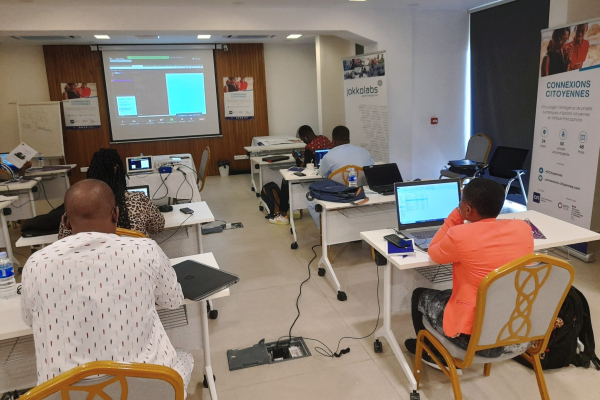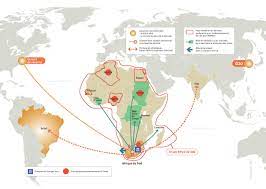Introduction
Artificial intelligence (AI) is transforming numerous sectors worldwide, and the film industry is no exception. In Africa, AI offers fascinating prospects for cinema, driving innovations from pre-production to film distribution. While the continent is still in a phase of digital transition, many African filmmakers and entrepreneurs are exploring how AI could revitalize African film production and export.
- AI in Pre-Production: Facilitating Creation
The pre-production process is often costly and requires substantial organization, especially in a continent where funding is a recurring challenge for creators. AI-based software, such as automated scriptwriting platforms, production management tools, and image generators for storyboards, are making the creation phase easier. These technologies allow African filmmakers to optimize costs and better organize their projects.
For instance, script analysis tools can identify strengths and weaknesses in a screenplay. This helps African screenwriters make their stories more impactful and better anticipate international audience expectations. Such technologies provide continuous improvement opportunities for screenwriters and directors who wish to produce works competitive on the global stage.
- From Special Effects to CGI: A New Visual World
The use of digital special effects has often been limited due to the high costs of necessary equipment and software. However, with AI, African filmmakers now have access to more affordable yet powerful image synthesis solutions. AI platforms enable the creation of stunning visual effects, often comparable to those produced in Hollywood’s biggest studios.
A recent example in West Africa is the development of short films and music videos incorporating sophisticated special effects using AI software, allowing the addition of fantastic or futuristic elements. This enables African creators to offer unprecedented visual worlds and attract an ever-growing audience.
- AI and Directing: Better Production Management
Production management and team coordination are often challenges for African productions, particularly due to logistical difficulties and limited budgets. AI can help optimize these processes through planning and shoot tracking software. These tools can help forecast costs, identify potential savings, and ensure smoother coordination among teams.
AI platforms also allow for anticipating and resolving potential issues before they arise, facilitating quick decision-making. Such tools are especially useful in African contexts where weather conditions and infrastructure can unpredictably impact filming.
- Marketing and Distribution: Reaching a Global Audience
Africa is home to a growing number of ambitious filmmakers with the goal of exporting their films internationally. Thanks to AI, they can now analyze viewer preferences and refine their marketing to meet the expectations of diverse markets. Recommendation algorithms efficiently promote African films to global audiences, offering targeted visibility on streaming platforms like Netflix or Amazon Prime.
Moreover, AI-driven distribution technologies facilitate access to online distribution channels, allowing African filmmakers to bypass the limitations of the local cinema network. Digital distribution platforms optimized by AI allow access to markets with a strong demand for African cinema, making it more easily accessible to a global audience.
- Challenges to Sustainable Development of AI in African Cinema
Despite AI’s promises for African cinema, several challenges remain. Limited access to technological infrastructure, the still-high costs of some software, and the lack of specialized training in AI technologies are major obstacles. Additionally, preserving African cultural identity, which may be diluted by an excessive reliance on automated creation tools, remains an important concern.
To address these challenges, several local and international initiatives are emerging, aimed at developing technical skills among young African talent. Partnerships between African studios and technology companies can also play a key role in democratizing access to AI tools and adapting them to the local realities of African cinema.
Conclusion: A Creative and Technological Renaissance
AI opens up fascinating horizons for African cinema, making it possible to create quality works with limited resources. It allows filmmakers to push creative boundaries and aim for broader, more inclusive distribution. The potential of AI for African film production is enormous, and by harnessing this technology, creators on the continent can aspire to compete with the world’s largest film industries while staying true to their cultural heritage.
The coming years will be crucial in determining how AI integrates sustainably and ethically into African film production, but one thing is certain: African cinema is on the path toward a major transformation, driven by technological innovation.



